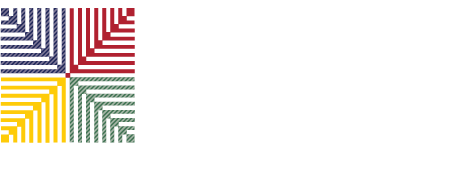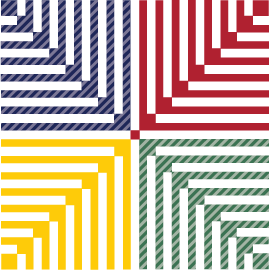As part of this year’s focus on Palestinian embroidery within the overall theme of cultural identity and preservation, BPFF has once again partnered with Taita Leila to showcase some of their hand-embroidered pieces to the public in the US. Taita Leila is a social enterprise that produces high quality, modern clothing inspired by the long and rich tradition of Palestinian embroidery. They aim to “reinterpret embroidery in a way that would make your grandmother proud.”
BPFF sat down with Taita Leila founder Noora Husseini recently to chat about the art of Palestinian embroidery as she’s about to launch a third collection.
Noora Husseini wasn’t sure what would happen in 2015 when she launched her first crowdfunding campaign to fund her socially conscious clothing enterprise. The founder learned that demand for handmade, high-quality, and ethically sourced women’s clothing was high when she smashed her initial goal of $25,000 during her first campaign. Husseini, who is Palestinian and an engineer by profession, designs the clothing, but it is all made in Palestine, even the boxes in which each item ships.
Husseini’s model is unique: Raising money for the work before pieces are available reduces waste, because producers know how much demand there is. This in turn provides the growing number of women in the West Bank who make the clothes with a reliable income, because they know how many pieces have been commissioned.
Taita is a colloquial Arabic term of endearment for Grandmother, while Leila is a woman’s name meaning night. In this case, Taita Leila refers to Leila Hussein Fakhri Khalidi, author of the book The Art of Palestinian Embroidery. A guiding principle on which Noora’s company was founded comes from Khalidi’s book.
As clothing was of prime importance, Palestinian women wanted something personal, distinctive and handmade. By adopting the traditional styles and motifs of her area, a woman expressed her wish to identify and be identified with her culture.
BPFF: Do you embroider?
NH: In all honesty, I am nowhere near as skilled as the women we employ! I can embroider but it takes me a long time.
BPFF: How was Palestinian embroidery used historically?
NH: Fashion and clothing has and will always used as a way of expressing oneself, and embroidery was no exception. The whole ensemble, the dress put together, the fabrics, the threads, said a lot about the woman wearing it!
BPFF: Does embroidery and its techniques reflect what is happening in Palestine (both historically and today)?
NH: That’s a great question. There are two main ways I see embroidery being used — politically as a statement, and culturally as preservation. With a culture under occupation, our narrative in a way has stood still, and it has reflected in the lack of real innovation in our designs.
BPFF: What is the significance of Palestinian embroidery as a means to preserve culture and illustrate narrative today?
NH: Identity is complex, and one of the best ways of expressing identity is through clothing. It is tribal, and instinctual, to choose to dress as per convention or to make the conscious choice to ignore it. The adoption of the kuffiyeh as a symbol of resistance is comparable, though embroidery is softer ‘power’ and in my opinion more long-lasting.
BPFF: Tell us about Taita Leila. What’s next? Will you release another collection?
NH: Yes! We are working on a collaborative collection that we hope to release next month, and another in spring of 2018!
BPFF: Palestinian embroidery is found in high fashion and is appropriated on pieces sold in stores around the world. How do you feel about this?
NH: We are all about a concept we call ‘cultural reappropriation’, where we educate the masses of the historical significance of our embroidery, while still keeping it fresh and modern.
BPFF: What’s your favorite piece in any of Taita Leila’s collections, and why?
NH: That’s a very difficult question to answer! We’ve sold out of our Ramallah Line, which is not only the piece that looks the most like the thoub but is super easy to wear. I’ve seen it styled in so many ways!
BPFF: What does Palestinian embroidery mean to you in three words?
NH: Timeless fashionable culture.
–Maura James for BPFF
If you’d like to view original Taita Leila pieces, join us Saturday, October 28 at BPFF’s Closing Celebration. The event will also feature an extensive exhibit of embroidery by Palestinian artist Clotilde Abudi and guest panelists including Wafa Ghnaim of Tatreez &Tea. Food from Aceituna Grill and Andala Café as well as Palestinian Taybeh beer and other drinks will be provided. Join us as we celebrate Palestinian embroidery and its impact on culture through time. Tickets: $15, available here. $20 at the door.
Our Closing Film, Stitching Palestine by Carol Mansour, profiles 12 Palestinian women who are linked by the thread of embroidery. Stitching Palestine screens on Sunday, October 29, 2017 at the Museum of Fine Arts, Boston at 3:00p and is co-presented with ANERA.
View the full festival schedule and buy tickets here.
All images on this page are via Taita Leila.




